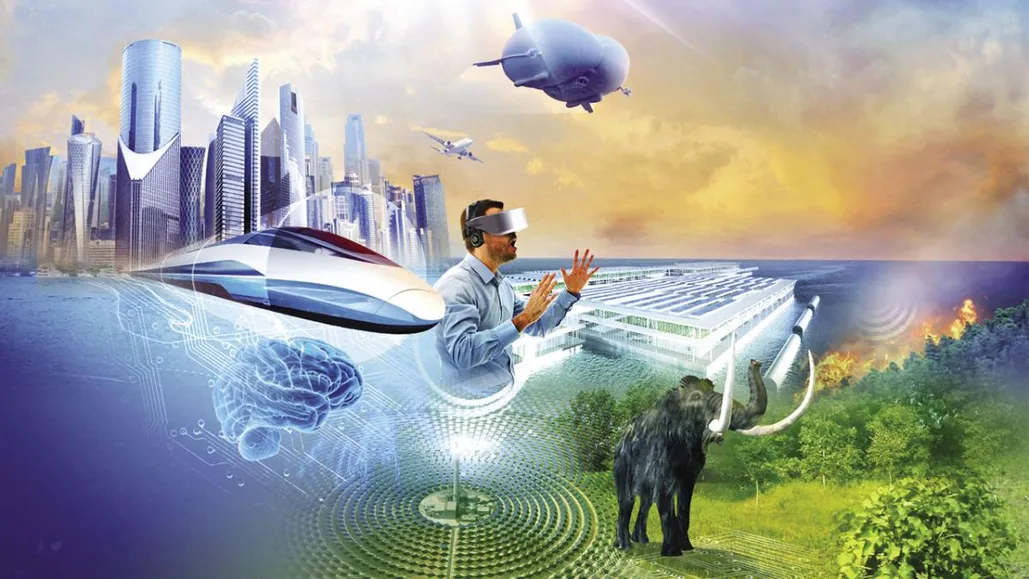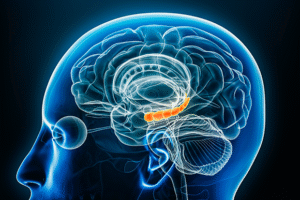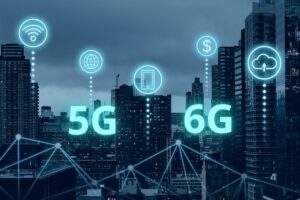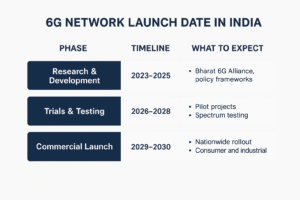🔮 What Will Happen to Technology in 2030? A Look Into the Future
Technology is evolving faster than ever, and the next decade promises to be even more transformative. If the past ten years brought us AI, blockchain, 5G, and smart devices, what can we expect by 2030?
By then, we won’t just be using technology—we’ll be living inside it. From AI-powered healthcare and self-driving transportation to quantum computers and human–machine integration, 2030 will redefine how we work, learn, communicate, and even think.
So, what exactly will happen to technology in 2030? Let’s dive into the trends and possibilities shaping our near future.
- 1. Artificial Intelligence Will Be Everywhere 🤖
- 2. Quantum Computing Will Unlock New Possibilities ⚛️
- 3. Fully Autonomous Transportation 🚗✈️
- 4. Biotechnology & Human Augmentation 🧬
- 5. Smart Cities Powered by IoT 🌆
- 6. Space Technology & Colonization 🌌
- 7. The Future of Work: Humans + Machines 👨💻🤝🤖
- 8. Personalized & Preventive Healthcare 🏥
- 9. Climate Tech & Sustainable Innovation 🌱
- 10. The Rise of the Metaverse & Extended Reality 🌐
- 🌟 Final Thoughts: What Will Happen to Technology in 2030?
1. Artificial Intelligence Will Be Everywhere 🤖
AI is already transforming industries, but by 2030 it will be deeply woven into everyday life.
- AI in daily life: Virtual assistants will evolve into personal digital companions, capable of making decisions, handling finances, and managing daily schedules with minimal input.
- AI in business: Companies will rely on AI-driven supply chains, predictive analytics, and fully automated customer service.
- AI in healthcare: Smart AI diagnostics will detect diseases earlier than human doctors. Personalized AI treatment plans will be common.
👉 By 2030, AI won’t just assist humans—it will collaborate with us like a coworker.
2. Quantum Computing Will Unlock New Possibilities ⚛️
Quantum computers are still in their infancy, but by 2030, we could see them solving problems that classical computers can’t.
- Impact on medicine: Accelerated drug discovery, allowing cures for complex diseases like Alzheimer’s or cancer.
- Impact on security: Traditional encryption methods will become outdated as quantum computing can crack them easily—pushing us into post-quantum cryptography.
- Impact on science: Quantum simulations will help model climate change, materials science, and astrophysics in ways we never thought possible.
👉 In short, quantum computing may redefine human knowledge itself by 2030.
3. Fully Autonomous Transportation 🚗✈️
Self-driving cars are already on the road, but by 2030 they’ll be the norm, not the exception.
- Autonomous cars: Roads will be dominated by driverless taxis, buses, and trucks, reducing traffic accidents caused by human error.
- Urban air mobility: Flying taxis and drones will provide fast city transport, changing how we think about commuting.
- Logistics: Automated cargo ships and drones will transform global trade.
👉 Imagine booking a taxi in 2030 and a car with no driver just pulls up at your door. That’s where we’re headed.
4. Biotechnology & Human Augmentation 🧬
Technology won’t just be external—it will become a part of us. By 2030, humans could be upgraded.
- Genetic engineering: CRISPR and advanced biotech could eliminate hereditary diseases and enhance human traits.
- Brain–computer interfaces (BCI): Devices like Elon Musk’s Neuralink will allow direct communication between brains and computers.
- Bionic enhancements: Prosthetics and implants will improve strength, vision, and mobility.
👉 By 2030, the line between humans and technology will blur.
5. Smart Cities Powered by IoT 🌆
Cities of 2030 will be intelligent, connected, and sustainable.
- Smart energy grids: Cities will run on renewable energy with real-time demand balancing.
- Connected infrastructure: Traffic lights, waste management, and public transport will all be IoT-driven.
- 5G and 6G networks: Ultra-fast internet will connect everything from cars to homes seamlessly.
👉 In 2030, cities will be like living organisms—self-regulating and adaptive.
6. Space Technology & Colonization 🌌
Space is no longer just for astronauts. By 2030, private companies and governments will make space travel more accessible.
- Moon bases: NASA and other agencies aim to establish lunar habitats.
- Mars missions: Human colonization efforts will be underway.
- Space mining: Companies will extract valuable metals from asteroids.
👉 By 2030, Earth may not be the only “home” for humanity.
7. The Future of Work: Humans + Machines 👨💻🤝🤖
Workplaces will undergo a massive shift.
- Automation: Many routine jobs will disappear, replaced by robots and AI.
- New jobs: Fields like robotics ethics, AI training, and quantum programming will emerge.
- Remote & virtual work: The metaverse and advanced VR tools will allow people to work from anywhere in immersive digital environments.
👉 The workplace of 2030 will look nothing like today—it will be global, digital, and human–machine integrated.
8. Personalized & Preventive Healthcare 🏥
Medicine in 2030 will be proactive instead of reactive.
- Wearable devices: Constant health monitoring through smart patches, implants, and sensors.
- Predictive care: AI will alert doctors (and patients) before illnesses become critical.
- Personalized medicine: Treatments designed for your unique genetic code.
👉 In 2030, healthcare will be tailored, predictive, and tech-driven.
9. Climate Tech & Sustainable Innovation 🌱
By 2030, the push for sustainability will be stronger than ever.
- Green energy dominance: Solar, wind, and fusion power will replace fossil fuels.
- Carbon capture technology: Machines will actively remove CO₂ from the atmosphere.
- Circular economy: Recycling and reusing materials will be standard in every industry.
👉 The biggest innovation of 2030 may be saving the planet itself.
10. The Rise of the Metaverse & Extended Reality 🌐
The internet will look very different in 2030. Instead of screens, we’ll interact with immersive 3D worlds.
- Work & education: Virtual classrooms and offices will be standard.
- Entertainment: Movies, sports, and concerts will be experienced in VR.
- Social life: Instead of scrolling feeds, people will meet in virtual spaces.
👉 In 2030, the metaverse will be as normal as using the internet today.
🌟 Final Thoughts: What Will Happen to Technology in 2030?
By 2030, technology will no longer be just a tool—it will be a living ecosystem integrated into human life. From AI assistants managing our routines to biotech enhancements reshaping our biology, the decade ahead will transform humanity more than any before.
But with these advances come ethical questions: Who controls AI? How do we protect privacy? How do we balance human rights with technological power?
One thing is certain: By 2030, technology will not only change how we live—it will change what it means to be human







Be First to Comment